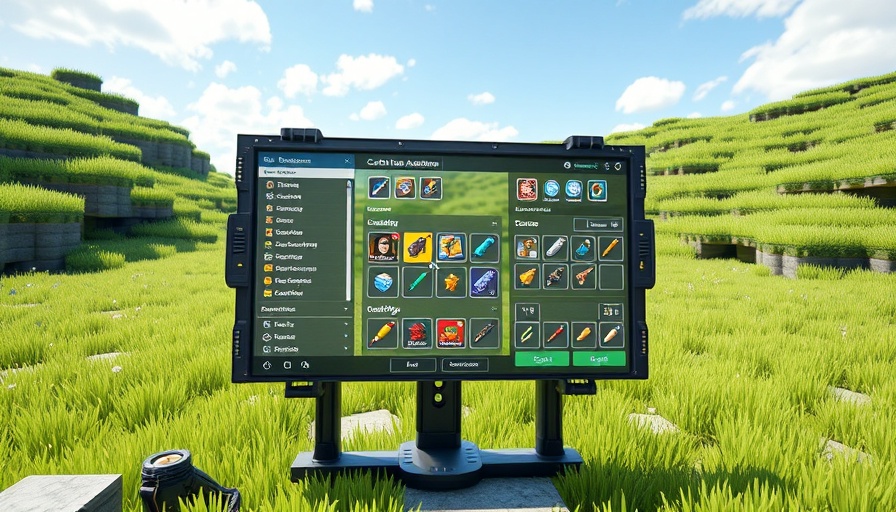
Is Microsoft's Copilot for Gaming Really the Future of AI in Gaming?
Microsoft’s introduction of the Copilot for Gaming has sparked discussions among AI lovers and gaming enthusiasts alike. This AI tool, set to beta test on Xbox platforms, vaunts the potential to personalize gaming experiences, yet leaves many questioning its necessity and effectiveness.
Understanding the Concept: A Gamer's AI Sidekick
The Copilot for Gaming is designed to be an ever-present companion for Xbox gamers, offering tips, tricks, and hints as needed. But the burning question remains: who exactly is this service aimed at? On one hand, players who might appreciate an AI guide could benefit from streamlined experiences, especially in complex, challenging games. However, as noted in various discussions, the overarching hype surrounding AI often leads to solutions seeking problems rather than fulfilling actual needs.
Evaluating the AI’s Effectiveness: A Flawed Premise?
While the prospect of having AI-powered advice at users' fingertips sounds enticing, the reality is more complex. As a recent report by the Columbia Journalism Review highlighted, AI systems like Copilot are often inaccurate. Microsoft acknowledges this limitation, stressing the importance of verifying AI-generated tips against trusted sources. This begs the question—if an AI tool isn't reliable, why integrate it into the gaming experience to begin with? The principle that gamers should constantly validate AI suggestions undermines the purpose of having a digital assistant.
Remembering Where You Left Off: A Potential Bright Spot
One valuable feature touted by Microsoft is the ability for Copilot to remind players where they last left off in a game. Drawing on nostalgic experiences, like the refreshers found in classics such as Phantasy Star IV, this could cater to those who may play intermittently or take substantial breaks from their gameplay. As gaming narratives grow increasingly complex, being able to recall one's status can enhance enjoyment and reduce frustration, presenting a legitimate reason to consider the Copilot’s integration.
The Human Element: Gaming Community Versus AI
Here's the crux: gaming has long thrived on community engagement and human interaction. AI solutions risk eroding these fundamental elements by providing automated responses that detract from the camaraderie and collaborative spirit of gaming. Players often turn to forums, strategy guides, and fellow enthusiasts for personalized advice and unique insights, which can be more enriching than a generalized AI response. The fear is that tools like Copilot might attract players away from engaging with these valuable human resources.
A Future with AI in Gaming: Hype or Hope?
Looking ahead, it’s crucial to reflect on AI in gaming and consider whether tools like Copilot can genuinely enhance our experiences or simply exist as a novelty. The AI landscape is evolving rapidly, and while the potential for innovation remains vast, it can also fall prey to overhype. Advocates need to focus on when AI is applicable and beneficial rather than pushing it solely for the sake of technological advancement.
Conclusions: Embracing Innovation with Caution
As we navigate the intersection of gaming and AI, awareness is key. Yes, advances like Copilot for Gaming may present new opportunities for immersing players in their digital worlds, but we must remain vigilant and critical. For AI enthusiasts, the advent of such tools invites curiosity and caution alike as we strive to balance innovation with genuine user needs.
What are your thoughts on AI's role in the gaming industry? Consider exploring further AI news to understand how these technologies are unfolding across various sectors.
 Add Row
Add Row  Add
Add 




 Add Row
Add Row  Add
Add 

Write A Comment